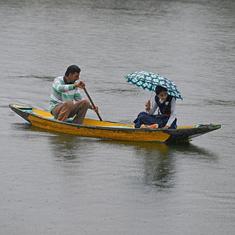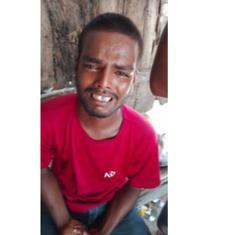SC issues 15 guidelines to address student suicides, mental health in educational institutions
The interim rules would remain in force until new laws or regulations are introduced, the court said.

The Supreme Court on Friday issued 15 interim guidelines to address the rise in student suicides and mental health challenges in educational institutions across India, PTI reported.
The guidelines include the appointment of trained counsellors and psychologists, the adoption of a uniform mental health policy and annual reviews of wellness interventions at such institutes.
A bench of Justices Vikram Nath and Sandeep Mehta observed that there was a “legislative and regulatory vacuum” regarding a unified, enforceable framework for suicide prevention in schools, colleges, coaching centres and similar environments.
The court said the guidelines would remain in force and binding until suitable legislation or regulatory frameworks were introduced by the competent authority.
The order came in response to an appeal against an Andhra Pradesh High Court decision that had rejected a request to transfer to the Central Bureau of Investigation a probe into the suspicious death of a 17-year-old National Eligibility-cum-Entrance Test aspirant in Visakhapatnam. The Supreme Court directed the central agency to take over the investigation, according to The New Indian Express.
Mental health safeguards
The Supreme Court directed all educational institutions to adopt and implement a uniform mental health policy, drawing from the UMMEED draft guidelines, the Manodarpan initiative and the National Suicide Prevention Strategy.
It must be reviewed annually and made publicly available on institutional websites and notice boards.
The draft UMMEED, or Understand, Motivate, Manage, Empathise, Empower, Develop guidelines were released in 2023 by the Union Ministry of Education to help prevent student suicides in schools.
The Manodarpan initiative was launched to provide psychosocial support during and after the COVID-19 pandemic. The National Suicide Prevention Strategy outlines roles for stakeholders in reducing suicide rates.
Among other suggestions, the court said that institutions with more than 100 students must appoint qualified counsellors, psychologists or social workers trained in child and adolescent mental health.
Smaller institutions may establish formal referral arrangements with external professionals.
The court directed educational and coaching institutions to avoid practices that could harm students’ mental well-being, such as public shaming, assigning academic targets that exceed students’ capacity and segregating students into batches based on their academic performance.
Residential institutions have been advised to install tamper-proof ceiling fans or other safety devices and restrict access to rooftops, balconies and similar high-risk areas to deter impulsive acts of self-harm.
The court said that coaching hubs in cities such as Jaipur, Kota, Sikar, Chennai, Hyderabad, Delhi, and Mumbai must implement enhanced mental health protections.
All teaching and non-teaching staff must undergo mandatory training twice a year, conducted by certified mental health professionals.
These guidelines apply to all public and private schools, colleges, universities and coaching centres.









